Industrial Development
Industrial Development
 | 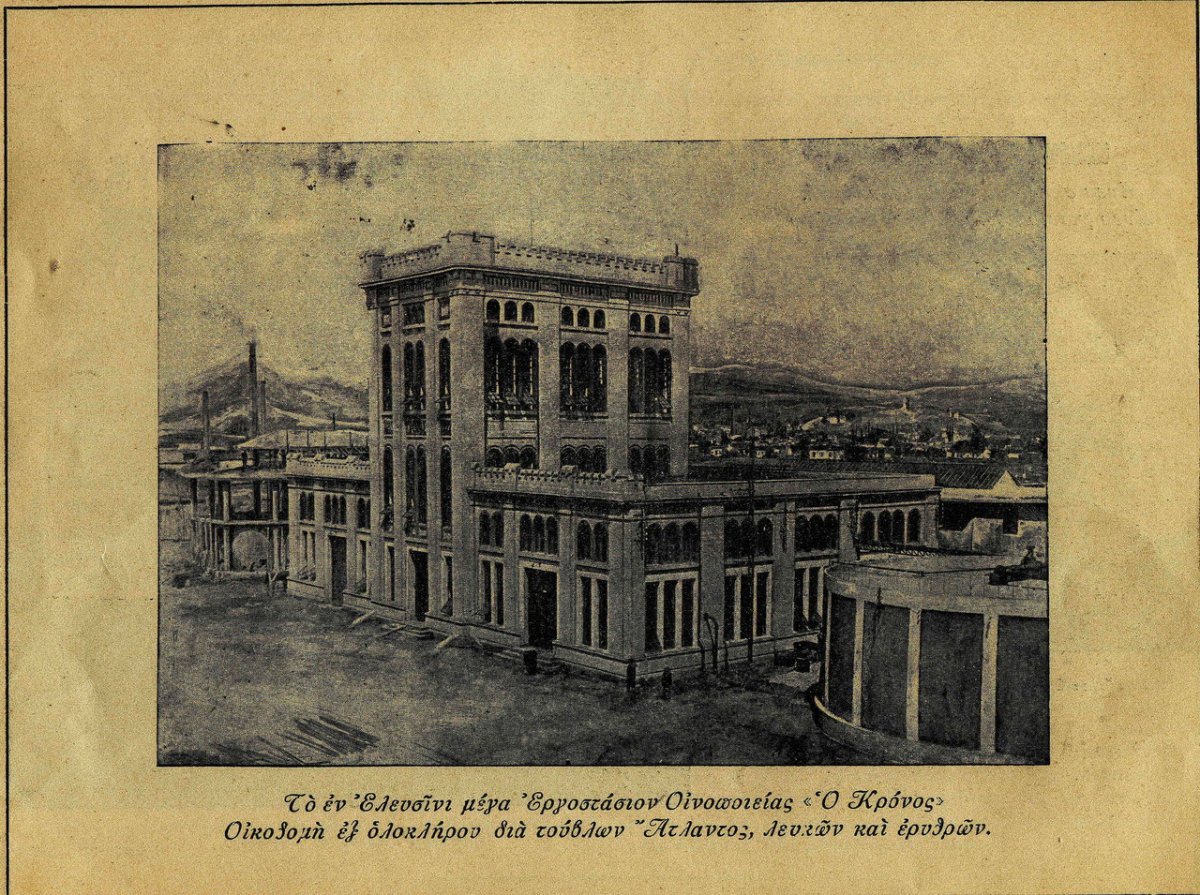 |  |
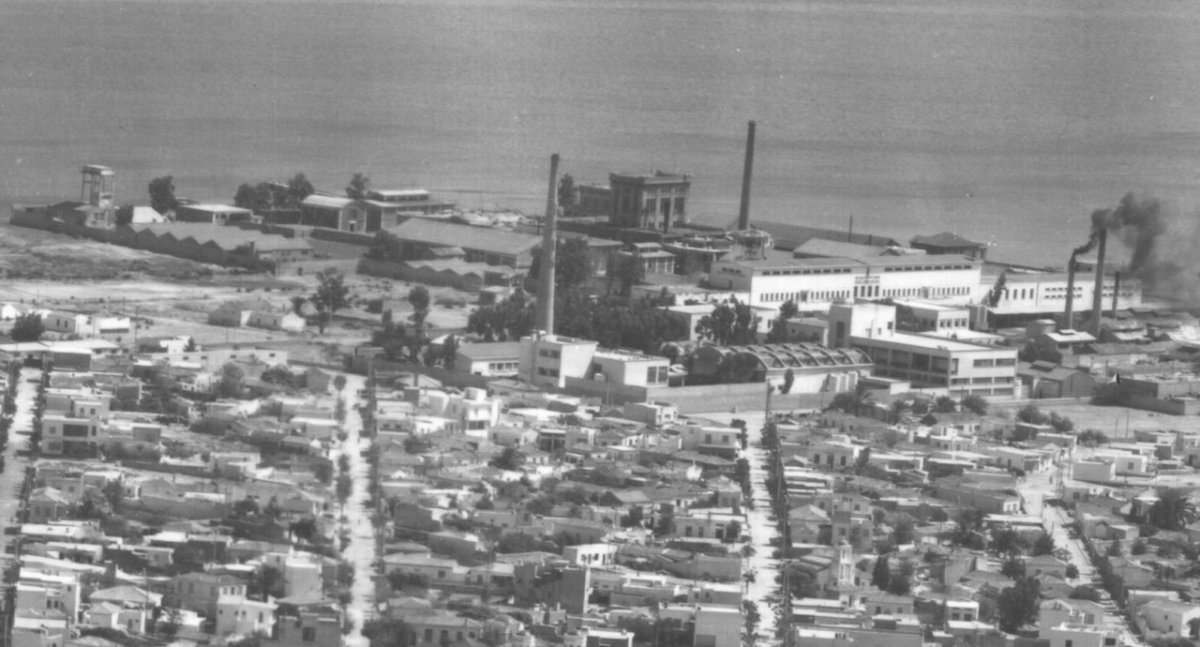 |  | |
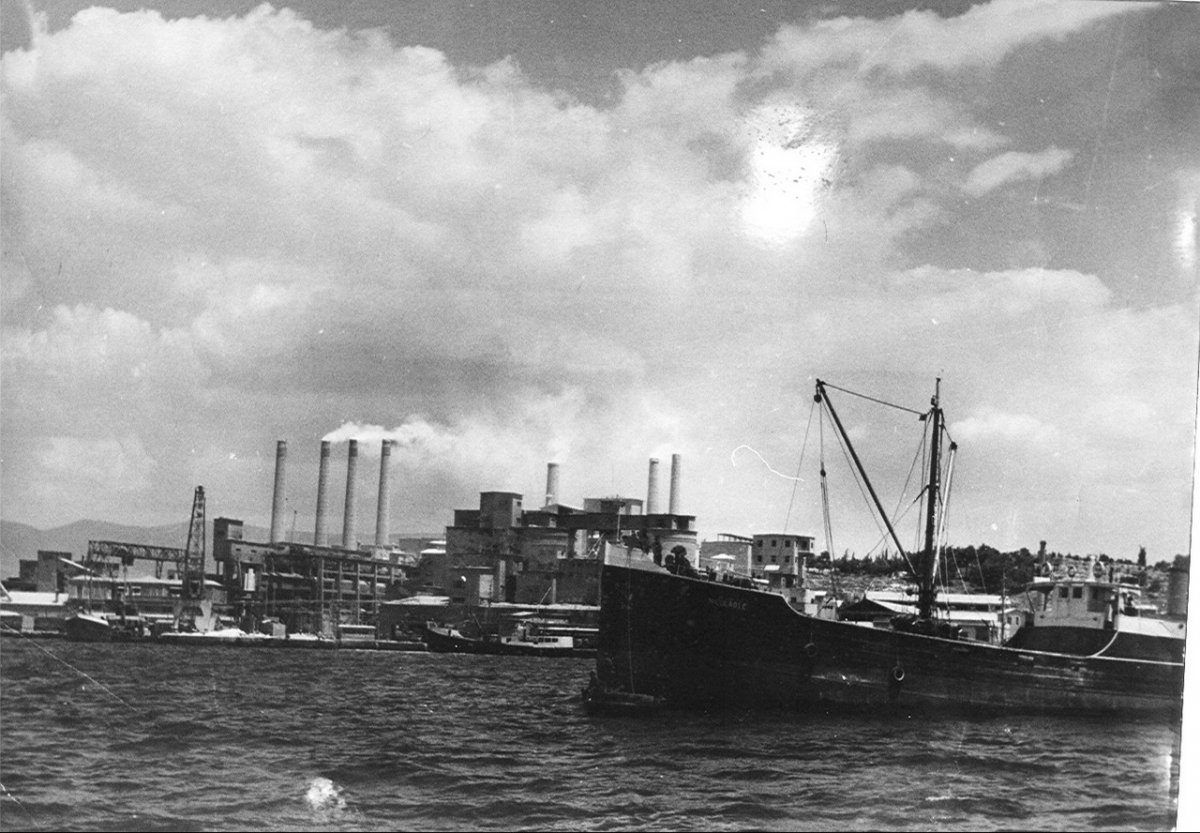 | 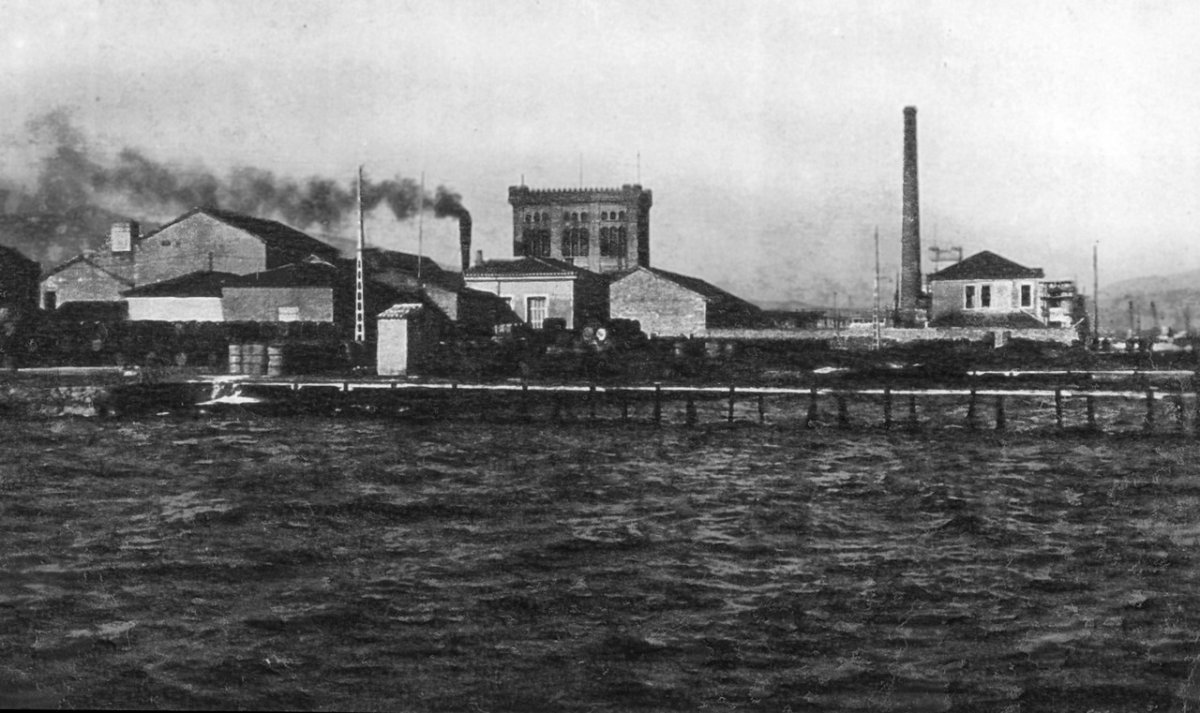 | 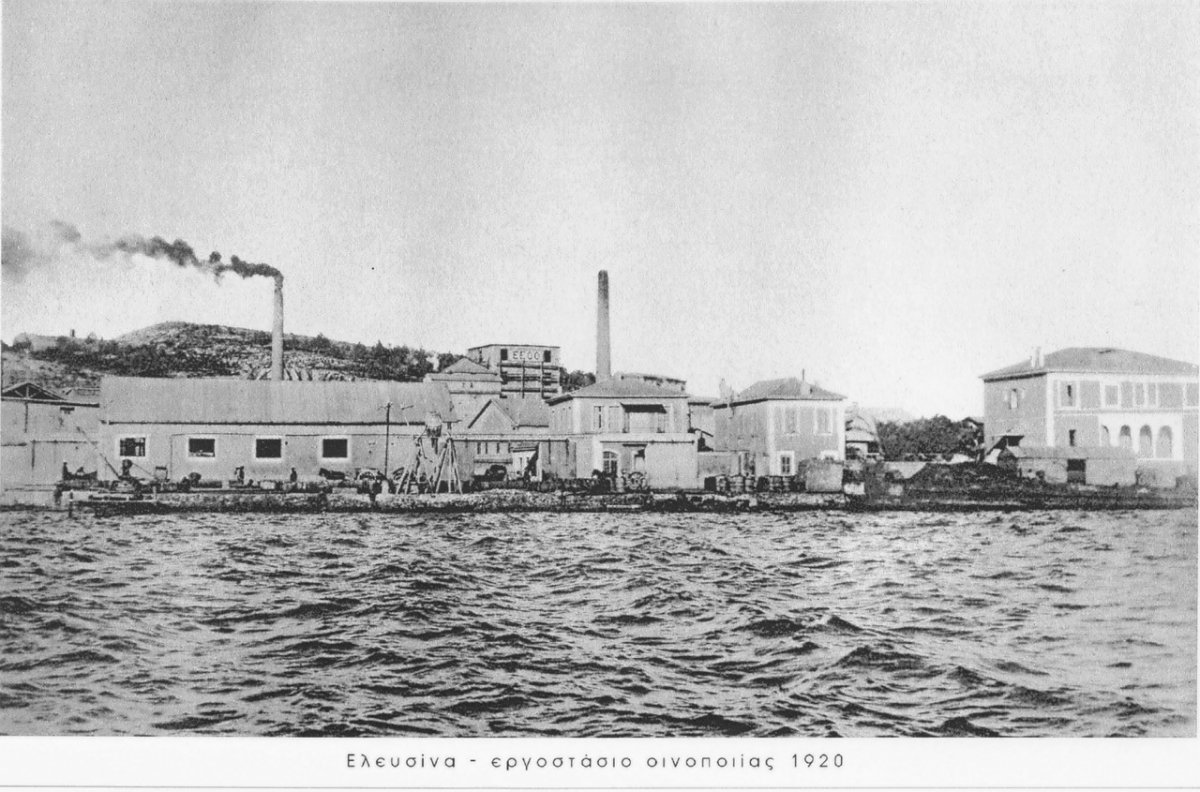 |
In 1875, the Charilaou Soap Factory was founded. (Its founders were brothers Lysandros and Emmanouil Charilaos, who had come from Galatsi, Romania). They were drawn to Elefsina by the operation of several small-scale soap manufacturing businesses. The product was easily transported by ship to Patras, Syros, and Piraeus. In 1895, Epaminondas Charilaos, who had studied chemistry in France and Germany, partnered with Nikolaos Kanellopoulos, also a chemist. Production reached 600 tons, of which 175 were exported to Mediterranean countries. "Sapon Elefsinos" competed with the French soap. When it first started operating, it employed 20 workers. In 1900, it had 90 employees, 10 of whom were women. In 1928, it had about 250 employees. It ceased operations in the 1960s.
In 1892, the second soap factory was founded by Hatzimeletis-Hatzilia. It employed 10 workers. It closed in 1922.
In 1900, Epam. Charilaos, in collaboration with Leontas Economidis, founded the "Charilaos and Co. Wine and Spirits Company," which by 1906 had become one of the most important industrial units. In 1906, it changed its name to "Hellenic Wine and Spirits Company," known as Votrys. It produced wines, spirits, and cognac. It used raisins as its raw material. In 1929, it had more than 250 employees. It ceased operations in 1986.
In 1902, the "Hatzikyriakou - Zachariou and Co. Company" established the first Greek cement factory, with an annual production of 18,000 tons. In 1911, it was officially named "TITAN" Anonymous Cement Company. In 1928, it employed 400 people, reaching 1,300 during its peak period. Today, its operations are limited to the production of white cement. The main production has been transferred to the Kamari factory.
In 1922, the Anonymous Distillery Company, known as KRONOS, was founded. The company had been operating since 1911, based in Piraeus. Its product was alcohol, and it used grapes as its raw material. In 1928, it had 250-300 employees. In 1970, it had about 150. It closed in 1986.
In 1925, Menelaos Sakellariou founded the first paint and varnish factory in Greece, under the name "IRIS" Chemical Paint and Varnish Factory - Menelaos Sakellariou and Co. The raw material was resin. Its heyday was in the 1950s. It closed shortly before 1970.
In 1929, the following were in operation: TITAN, the KRONOS wine company, Anonymous Wine and Spirits Company, a glassworks, seven resin processing factories, employing 1,500 people from Elefsina, Mandra, a few from Vilia, and refugees who probably worked occasionally.
At the beginning of the 1930s, there were three pottery workshops (kilns).
The Ioannis Patalas Pottery Workshop.
The Thanassoulopoulos Pottery Workshop. It operated until 1935. It was the largest and employed 40-50 people, occasionally reaching 100.
The Papageorgiou Pottery. They ceased operations at the end of the 1950s because there were no longer any raw materials in Elefsina.
The years of "superficial prosperity" saw the first cases of pollution. The sea was polluted by oil, which ships unloaded to supply factories. The problem was highlighted in a resolution passed by the community council on June 28, 1938, which called on the government to take action. There was no follow-up to the resolution. The pollution of the city had begun.
In 1953, Halyvourgiki S.A. began operations. The company was founded in 1925, when its founder, Th. Angelopoulos, and his children were trading in iron. In 1932, the company was based in Piraeus and was called "Hellenic Wire Works Th. Angelopoulos and Sons." Halyvourgiki started with about 600 employees and reached 2,700 in the 1970s.
In 1955, the "Oil Industry - Central Cooperative Union of Greek Oil Producers" was founded. The first factory operated on the beach, where the Hatzimeletis soap factory used to be.
In the 1960s, small units were established, such as the Gastouniotis Ice Factory, E.B.P.A., E.D.O.K. - E.T.E.R., and the Savva Shipyards.
During the same period, the Aspropyrgos Refineries were established in the wider Thriassio area, alongside PETROGAZ, the HALYPS industry, and the Skaramanga Shipyards.
In 1969, the ELEFSINA SHIPYARDS began operating. By 1975, it employed approximately 300 people. It then became the property of the Greek state. In 1992, it was privatized again.
In 1973, PETROLA S.A. was added. It occupies an area of 1,800 acres. It has 84 oil storage tanks with a total volume of 3,600 cubic meters. The factory's waste pollutes the sea and air in the area.
Other smaller industries began operating during the same period: Agricultural-Fishing, Bakopoulos S.A., Shipbreaking, Dimitropoulos-Polychronopoulos Timber, OWENS Glassworks, and others.
In the 1980s and 1990s, many of the existing industries closed down and others, usually smaller ones, opened. The production factories were replaced by storage facilities, which were developed in areas on the north side of the city, near Attiki Odos.
In Elefsina, there are five inactive industrial sites (Votrys, Eleourgeio, Kronos, Retsinadiko Nezi, Eleourgeiki).
Contact info
We are the leaders in the building industries and factories. We're word wide. We never give up on the challenges.
- 2 Queen Street,California, USA
- (+84) 04 123 456
- info@example.com

